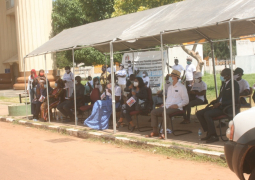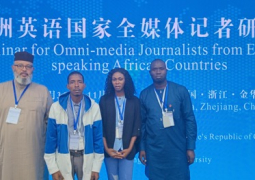
In a press release made available to this medium, NSGA said: “The Gambia criminalised and banned Female Genital Mutilation in 2015, recognising the act as a gross violation of human rights on women and girls. This marked an important milestone in the history of The Gambia, as children and women’s rights activists had been advocating for the end of the practice for over thirty (30) years.”
Unfortunately, after nine (9) years of the ban, some NAMs together with the Supreme Islamic
Council of The Gambia are spearheading a movement to lift the ban, with claims that it infringes
upon rights to practice their culture and religion. This is thus followed by a private member Bill
to amend the Women’s Amendment Act 2015 and lift the ban on FGM. The move has sparked a
lot of debates and controversies in the country.
Nova Scotia Gambia Association alongside other civil society and non-governmental
organisations including UNICEF – Government of The Gambia - CSO Consortium against FGM
and Child Marriage in The Gambia and other concerned citizens working to protect and
safeguard the rights of women and girls, strongly urge NAMs to uphold the ban on FGM and
help advance women and girls’ rights.
The Gambia as a signatory to various treaties and conventions, such as, the Maputo Protocol, CEDAW and the Convention on the Rights of the Child, is expected to uphold their commitment to these international instruments.
“We are with the firm belief that FGM is not a religious obligation, it is a deep-rooted cultural
practice, that causes medical hazards for women and girls,” said NSGA.
Global and national research has shown that FGM causes physical and psychological harm to survivors, including; pain, infections, long-term complications, trauma among others.
Having worked with survivors for over 6 years now, Nova Scotia Gambia Association said it believes FGM is a gross violation of human rights, and thus the practice needs to end now.
As the Bill is currently at the National Assembly Business committee, NSGA urges the
NAMs to make a decision in the interest of women and girls.
“We urge them to look at all the existing data and evidence that shows the harm FGM is causing to our women and girls and not their sentimental attachments. Most importantly we encourage you all to listen and hear the voices of survivors to be able to make the right decision to protect their well-being. That one girl child affected by FGM is one too many for us, as child right advocates,” it further said.
It thanked the CSO Coalition and all concerned individuals in protecting the rights of women and
girls for their continued commitment and efforts in the recent mobilisation against the repeal of
the FGM Law.




